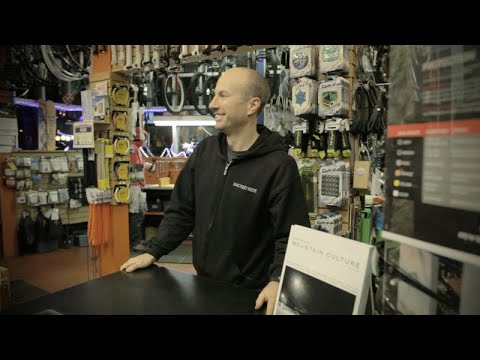Career Overview
Retail salespersons sell, rent or lease goods and services directly to consumers. They may also assist with a company's e-commerce site. Visual merchandisers plan and create windows and in-store displays.
They work for stores and other retail or wholesale businesses.
Job Titles
Duties
Retail salespersons:
- Greet customers, answer questions and communicate the benefits of products and services for purchase, rental or lease
- Explain and answer questions about the use and care of merchandise, including distinctions between brands, models and manufacturers' specifications
- Describe sales promotions or policies about payment and exchanges, financing and warranties
- Estimate or quote prices, credit terms, trade-in allowances and delivery dates
- Prepare merchandise for purchase, rental or lease
- Set up sales, rental or leasing contracts
- Calculate the cost of goods, services or admission using a cash register, optical price scanner or other equipment
- Process cash, credit and/or debit card transactions
- Create or assemble displays and stock shelves
- Run computerized inventory record keeping and re-ordering systems
- Wrap or bag merchandise
- May do sales transactions through internet-based commerce platforms
- May give advice on interior decorating, home entertainment systems, computers, cars and other products and services
- May be responsible for maintaining sales records and tidying the store
Visual merchandisers:
- Create window and interior displays
- Assemble visual retail displays to promote products, promotional events and seasonal changeovers
- Ensure that visual displays follow brand guidelines and standards and reflect the organization's culture, image and target market
- Set up displays to highlight visual focal points through fixtures (mannequins, display cases, racks), merchandise, signage and lighting
Earnings
Earnings is income that workers receive in exchange for their labour. Depending on the type of employment, earnings can be in the form of wages (hourly), salaries (fixed monthly or annual) or self-employed earnings.
Work Environment
# Workers Employed
86,255% Employed Full Time
33%Retail salespersons typically work indoors, though some jobs (for example, car sales) involve working outdoors. Hours tend to be irregular but flexible. Employees often work weekends, evenings and holidays.
Workers typically stand for long periods and may need permission to leave the sales floor. They spend most of the day working directly with the public, answering questions and selling goods and services.
Retail salespersons may have to stay after closing to clean and organize the sales floor for the next day. Some workers may lift and package or bag heavy products.
Visual merchandisers also typically work indoors. Hours are usually scheduled before or after store hours. Due to the promotional aspect of visual merchandising, hours may also include holidays when required.
Visual merchandisers need to be physically strong and capable of climbing ladders and moving merchandise and fixtures.
Career Pathways
With additional training and/or experience, retail salespersons and visual merchandisers may progress to supervisory positions. Depending on the size of the company, progression to a regional/provincial manager is possible. In some retail companies it is also possible to move into team training positions.
Experience or training in online sales can be useful for people who would like to move to more senior positions.
Drafting and schematic design is required for store planning and design jobs. With additional training, education and/or experience, visual merchandisers may move into positions such as home staging or tradeshow, museum and/or exhibition design.
Occupational Interests
It’s important to understand what kinds of occupations align with your interests.
For more about occupational interests visit Skills for the Future Workforce > Characteristics.
Here are the top occupational interest(s) for this career profile:
Education, Training and Skills
Some retail sales jobs require little or no prior knowledge (for example, retail sales in a toy store), while others (for example, car salesperson) require training to make sure staff are knowledgeable about the product(s) they are selling.
Some retail sales jobs may also require:
- Secondary school graduation
- A university degree or college diploma
- Specific subject matter courses or training
- Sales training
- Demonstrated sales ability and product knowledge (for retail salespersons who sell complex or valuable merchandise, such as automobiles, antiques or computers)
With experience, retail salespersons may move into visual merchandising roles.
Design skills and post-secondary education (computer-assisted drafting and rendering, schematic design, experiential design, interior design) may be an asset for people seeking visual merchandising jobs.
Education programs in B.C.

Top Skills
Every job calls for a certain set of skills. Knowing those skills is the first step in finding a good career fit.
Here, you will find the 10 most relevant workplace skills. Some are more important to achieving success in a certain career than others. These skills may come naturally to you or you may need to gain them through education, training and experience.
See the list of work-related skills below, ranked in order of importance for this career. Check out the list and see if this career matches your skills—take that first step!
Giving full attention to what other people are saying, taking time to understand the points being made, asking questions as appropriate, and not interrupting at inappropriate times.
Talking to others to share information effectively.
Understanding written sentences and paragraphs in work-related documents.
Using logic and reasoning to identify the strengths and weaknesses of alternative solutions, conclusions or approaches to problems.
Actively looking for ways to help people.
Being aware of others’ reactions and understanding why they react as they do.
Adjusting actions in relation to others' actions.
Managing one’s own time and the time of others.
Considering the relative costs and benefits of potential actions to choose the most appropriate one.
Being able to solve novel, ill-defined problems in complex, real-world settings.
Labour Market Statistics
Discover data, facts and information that have been gathered and analyzed. Learn about the characteristics of the economy and labour market in B.C.
Employment
Find out about employment types and trends by region and industry.
Employment
86,255Employment by Region







| Region | Employment | % Employment of this Occupation |
|---|---|---|
| Cariboo | 2,490 | 2.9% |
| Kootenay | 2,460 | 2.9% |
| Mainland/Southwest | 53,410 | 61.9% |
| North Coast and Nechako | 1,020 | 1.2% |
| Northeast | 1,005 | 1.2% |
| Thompson-Okanagan | 11,430 | 13.3% |
| Vancouver Island/Coast | 14,445 | 16.7% |
Labour Market Outlook
The B.C. Labour Market Outlook is a 10-year forecast of the expected supply and demand for labour in the province. It’s usually updated every year. The purpose is to provide British Columbians with the knowledge to make informed decisions on careers, skills training, education and hiring.
Forecasted Job Openings (2025-2035)
26,970Forecasted Job Openings
Forecasted Employment Growth Rate
Composition of Job Openings
Job Openings by Region (2025-2035)







| Region | Job Openings | Avg. Annual Employment Growth |
|---|---|---|
| Cariboo | 640 | 0.3% |
| Kootenay | 620 | 0.5% |
| Mainland/Southwest | 16,480 | 0.9% |
| North Coast and Nechako | 300 | 0.8% |
| Northeast | 390 | 1.1% |
| Thompson-Okanagan | 3,040 | 0.6% |
| Vancouver Island/Coast | 5,490 | 1.3% |
Industry Highlights
Learn about the opportunities in B.C.'s major industries, including employment trends, earning potential, locations of work and more.
Forecasted Job Openings by Industry
| Industry | Job Openings (2025-2035) |
|---|---|
| Retail Trade | 20,990 |
| Wholesale Trade | 1,510 |
| Manufacturing | 810 |
| Information, Culture and Recreation | 730 |
| Professional, Scientific and Technical Services | 710 |
Resources
-
Retail Design Institutewww.retaildesigninstitute.org/
-
Retail Design Institute – Canada Chapterwww.retaildesigninstitute.org/canada#!event-list








